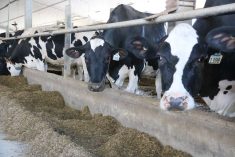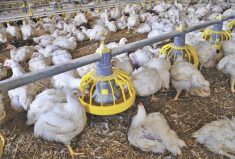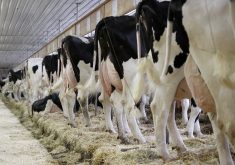Animal Health Canada has announced updates to its Canadian Livestock Training certification program for livestock transporters.
In a May 29 news release, the organization said it has revamped core training materials to make the training program more engaging and user-friendly, with access to digital platforms and more Canadian context.
Why it matters: The updated training materials are designed to be more accessible to Canadian livestock transporters and more reflective of current regulations.
Read Also

Conservation Authorities to be amalgamated
Ontario’s plan to amalgamate Conservation Authorities into large regional jurisdictions raises concerns that political influences will replace science-based decision-making, impacting flood management and community support.
The announcement came alongside the unveiling of a new AHC campaign called Better, Safer, Canadian, meant to underline the importance of livestock training certification.
AHC executive director Colleen McElwain said both initiatives are an effort to reach more Canadians.
“We really want to build awareness of the Canadian Livestock Transport Program,” she said. “The campaign itself is really a strategy to help encourage people to be involved in transport, to get the training and to consider Canadian standards when they do that.”
The program certification is also valid in the U.S. but was created in a Canadian framework.
“The current training that’s out there is mostly U.S.-based so it doesn’t necessarily follow Canadian standards for care or biosecurity or even our regulatory perspective,” said McElwain.
“By using the CLT program, you’re getting a made-in-Canada solution that really is better in the Canadian context.”
She said updates to the training were partly done to adapt to newer, more accessible technology.
“The new CLT that’s being released is compatible with mobile devices, it’s compatible with tablets and laptops, and it is much more interactive for the user. That way they can get more engagement as they go through the entire program.
“When we initially moved it online, the format was less accessible and less engaging for the user, so we knew there was the opportunity to take advantage of newer technology and best practices that we’ve learned in the past couple years.”
McElwain also said it was important that the training keep up with Canadian standards and regulations that may have changed in recent years.
“The content needed to be reviewed just to make sure it was up to date. The Canadian transportation regulations had changed,” she said. “That led to us doing a whole platform review as well as the content review and then re-releasing it.”
Biosecurity was another consideration in the updates. Livestock diseases such as highly pathogenic avian influenza and African swine fever are national concerns.
McElwain said AHC also considered the recently updated National Farm Animal Care Council codes of practice. That organization recently updated its dairy code and created a new code for goats.
“There is discussion of the codes of practice and how they also help to guide us on some of the behaviour of animals and some other welfare needs.”













